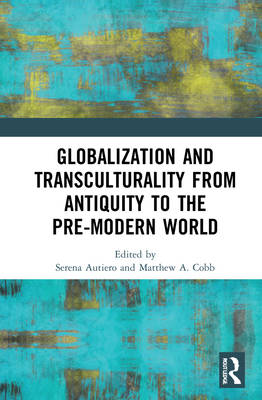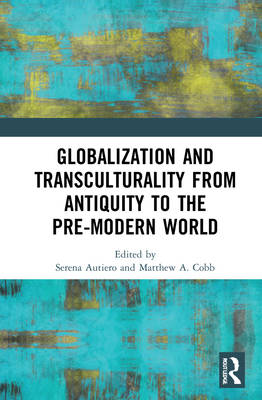
- Retrait gratuit dans votre magasin Club
- 7.000.000 titres dans notre catalogue
- Payer en toute sécurité
- Toujours un magasin près de chez vous
- Retrait gratuit dans votre magasin Club
- 7.000.0000 titres dans notre catalogue
- Payer en toute sécurité
- Toujours un magasin près de chez vous
Globalization and Transculturality from Antiquity to the Pre-Modern World
Description
This book explores how globalization and transculturality are useful theoretical tools for studying pre-modern societies and their long-distance connections. Among the themes explored are how these concepts can enhance our understanding of trade networks, the spread of religions, the diffusion of global fashions, the migration of technologies, public and private initiatives, and wider cultural changes.
In this book, archaeologists and ancient historians demonstrate how in diverse contexts - from the Bronze Age to colonial times - humanity displayed an urge and an incredible capacity to connect with distant lands and people. Adopting and modifying approaches originally developed for the study of contemporary societies, it is possible to enhance our understanding of the human past, not only in economic terms, but also the cultural significance of such interconnections.
This book provides both the wider public and the specialist reader with a fresh point of view on global issues relating to the past; in turn, allowing us to look anew at developments in the contemporary world. Its large chronological and geographical scope should prove appealing to those who want more than mere Eurocentric history. Teachers and students of world history and archaeology will find this book a useful resource.
Spécifications
Parties prenantes
- Editeur:
Contenu
- Nombre de pages :
- 296
- Langue:
- Anglais
Caractéristiques
- EAN:
- 9780367560553
- Date de parution :
- 30-09-21
- Format:
- Livre relié
- Format numérique:
- Genaaid
- Dimensions :
- 156 mm x 233 mm
- Poids :
- 699 g

Les avis
Nous publions uniquement les avis qui respectent les conditions requises. Consultez nos conditions pour les avis.





